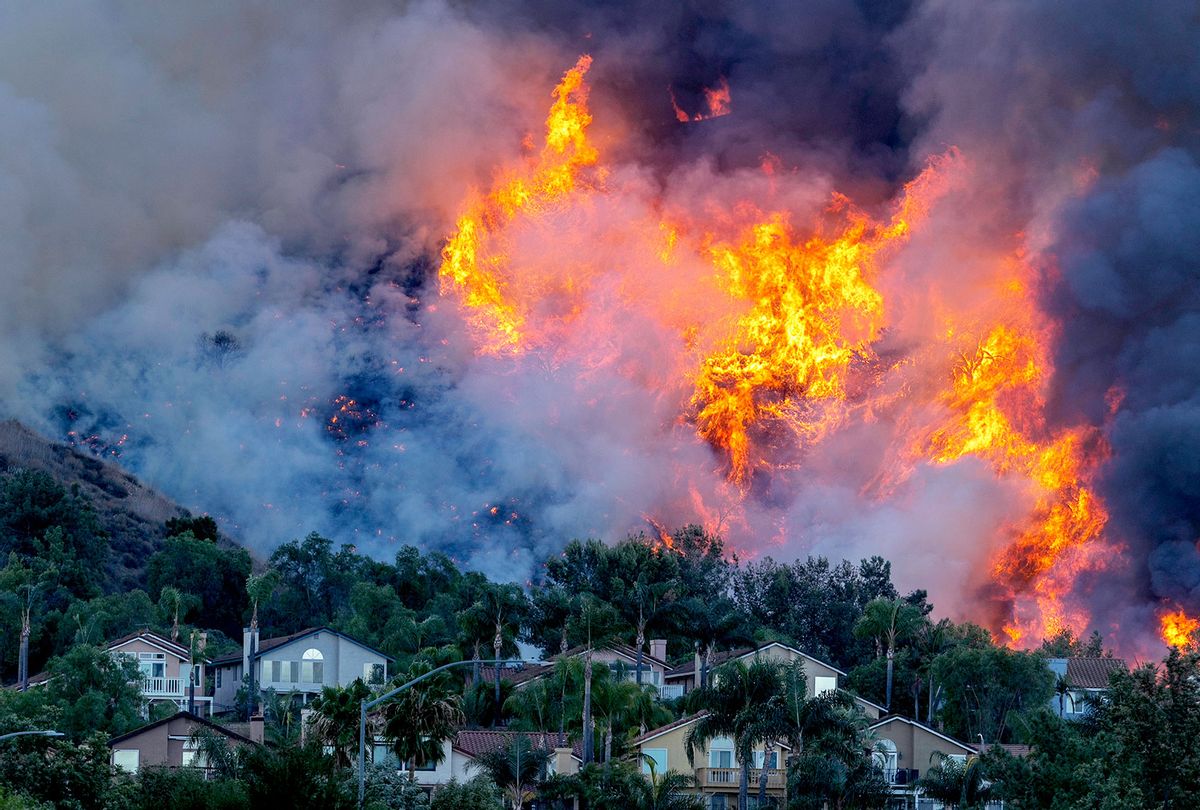The United States is hot and dry. Large portions of the West are in "exceptional drought," the most extreme rating assigned by the U.S. Drought Monitor. States that rely on the Colorado River are preparing to ration water. And a hellish heat dome set up camp over the Pacific Northwest this week, smashing temperature records and killing hundreds. As of Wednesday, 36 uncontained large wildfires burned across the nation. The western half of the country is a giant tinderbox. The last thing anyone should be doing there is lighting a match.
But that's exactly what will happen this holiday weekend. Millions of Americans will celebrate Independence Day with fireworks — a classic American tradition. Those fireworks will start fires.
Research shows that more fires are ignited on July 4 than any other day of the year. From 1992 to 2015, Americans sparked some 7,000 wildfires on Independence Day. This week, more than 130 fire scientists published an open letter calling on people to skip the fireworks this year. "We are gravely concerned about the potential for humans to accidentally start fires," the letter reads.
Jennifer Balch, an associate professor of geology at the University of Colorado Boulder and one of the signatories of the open letter, gets anxious when she sees fireworks for sale on the side of the road where she lives in Boulder, Colorado. "Fireworks are just a terrible idea," she told Grist. "It's so obvious, and yet the response is so scattered in the sense that the decision to ban them is left up to local and state-level decision-making."
A few places have put outright bans on fireworks in place. Colorado has a ban on all fireworks that leave the ground, but sparklers, groundspinners, and other small fireworks are permitted in some counties. Local officials in parts of Arizona, Idaho, Montana, New Mexico, North Dakota, Oregon, South Dakota, Utah, and Wyoming have considered or enacted bans this year. But the only state in the nation that has put a full ban on all consumer fireworks is Massachusetts. And enforcing those partial bans in some states requires time and resources that many local agencies don't have. In Portland, Oregon, Portland Fire and Rescue said that it won't be enforcing the city's ban on fireworks unless things get really out of hand. "We don't have the resources, Portland Police doesn't have the resources right now," a Fire and Rescue official told a local television station in Portland this week.
People might not know that a firework they set off on July 4 might burn down their neighborhood on July 5. But that's what ends up happening. Illegal Fourth of July fireworks set off hundreds of fires in California alone last year. Human activity, Balch said, is responsible for the vast majority of fires that threaten America's homes every year — as much as 97 percent of them, according to her research. "We should be more considerate of the fact that, in the western U.S., we live in very flammable landscapes — landscapes that are getting even more flammable with climate change," Balch said.
Phillip Higuera, a professor of fire ecology at the University of Montana and the chief organizer of the open letter, is also filled with dread when he sees fireworks for sale in Missoula, where he lives. "To have the stage set with this drought and heat wave, it's just kind of agonizing to see," he said. Despite the handful of communities that have banned fireworks as the clock ticks down to July 4, Higuera thinks not enough states and municipalities are sounding the alarm.
"It's like watching a freight train with a lot of momentum moving down the track," he said. "You know that there's gonna be a lot of ignitions, and when those hit these extremely dry fuels, they're going to be fast-moving wildfires that are going to be hard to suppress."
This is the first time Higuera and Balch have ever spoken out this assertively to try to head off fireworks ahead of July 4. But both said the risk was just too high this year to sit back and do nothing. "If we can get one person to not ignite a fire, then that will be great," Higuera said.
"This is a tradition and one of the holidays we celebrate," Balch, who enjoys fireworks as much as the next person, said. "It's too bad it didn't fall on January 4 instead of July 4."




Shares